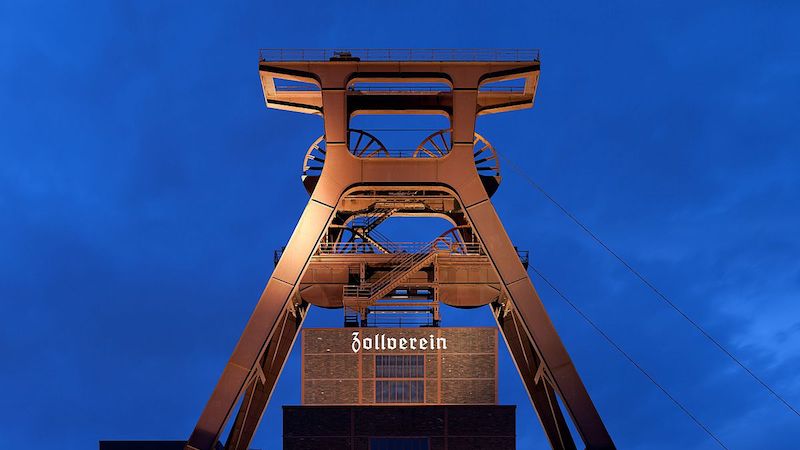A hard-won compromise has been agreed in Germany over the future of its power system.
The government welcomed an official proposal to phase out coal-fired power from the country’s energy mix no later than 2035-2038.
Setting an end date is a welcome first step, and this recommendation should quickly be approved and translated into law. However, the speed of the switch away from coal has to accelerate if Germany is to maximise the economic and social benefits of the zero-carbon transition, and deliver its commitment as part of the Paris Agreement.
For Germany to harness the full potential of the transition, it needs to step up its ambition and phase out coal-fired power by 2030.
Given ongoing cost reductions in renewables and growing demand from businesses to be powered by clean energy, the market will likely deliver the end of coal in Germany earlier than is currently thought possible. By embracing this momentum and setting bold policies to implement the coal phase-out, the German government can send a clear signal to business that it backs their efforts to accelerate progress towards achieving the goals of the Paris Agreement, and deliver the policy landscape that will accelerate corporate access to markets for renewable electricity.
Leading companies are increasingly demanding renewable power and shunning coal. Coal is responsible for over 800,000 premature deaths per year globally and many millions more serious and minor illnesses. In Europe alone, coal is responsible 23,300 of those deaths. To date over 160 of the world’s most influential companies have committed to source 100% renewable electricity through RE100*.
This includes many leading companies headquartered in Germany, such as Allianz Investment Management, BMW and Commerzbank. These companies recognise that renewable electricity is becoming the most affordable and reliable way to power business growth.
Unsubsidised renewables were the cheapest source of electricity in 30 countries in 2017, with renewables predicted to be consistently more cost effective than fossil fuels globally by 2020, according to research by the World Economic Forum.
Concerns over reliability are quickly evaporating too, thanks to the development of key technologies such as battery storage and better demand management. For example, the energy storage market is forecast to double six times by 2030, with more than $100 billion being invested across the globe in the next 15 years, according to Bloomberg New Energy Finance.
Many European utilities – including Iberdrola, Enel and Ørsted – are embracing the transition to zero-carbon power and demonstrating their commitment to the goals of the Paris Agreement by setting science-based emission reduction targets (SBT).
As part of its SBT, Iberdrola is investing more than €32 billion in low-carbon solutions between 2018 and 2022, focusing on renewable energies and networks. And thanks to Ørsted’s action, the company now accounts for more than half of Denmark’s entire CO2 reduction since 2006.
Having the clarity of ambitious timelines helps these companies to invest confidently in the zero-carbon power system of the future.
Coal phase-out will increase German need for gas, says Merkel
Business leaders have called on the EU to commit to net-zero GHG emissions by 2050 at the latest, through a statement from the We Mean Business coalition and letters from partners. The Prince of Wales’ Corporate Leaders’ Group (CLG) urged EU Environment Ministers to achieve net-zero emissions by 2050 at the latest, and more than 20 business and civil society leaders, along with former heads of state and government officials, signed a further joint letter coordinated by the B Team calling for the EU’s long-term strategy to include a net-zero by 2050 target. Having the clarity of ambitious timelines helps these companies to invest confidently in the zero-carbon power system of the future.
This must be carefully combined with careful planning for a just transition to ensure workers at risk of unemployment are not left behind. A more ambitious timeline for the transition will allow Germany to better harness the employment potential of renewable energy.
Around 20,000 people work in Germany’s remaining lignite industry, following the closure of the country’s hard coal mines last year. Care should be taken to ensure all affected workers and communities are safeguarded against the disruption caused by moving away from coal.
Climate news in your inbox? Sign up here
Jobs in renewable energy meanwhile are seeing unparalleled growth. In Germany, the renewable sector employs 325,000 people, more than ten times the number in the country’s remaining coal mining sector.
Many European companies including leading utilities have stepped up and acted on the call for a just transition, helping to protect all workers and communities by signing the Pledge for a Just Transition to Decent Jobs.
This shift is happening elsewhere already. Other countries are well ahead with the clean-energy transition and already reaping the benefits. There are seven countries currently at, or very near, 100% renewable power grids. These include Norway and Austria, while more countries are setting out pathways to be 100% renewable by 2050, including Spain.
Major German insurance companies have taken important steps to begin limiting finance and insurance coverage to coal mining companies and utility companies dependent on coal power generation.
For example, Allianz last year decided to withdraw from insuring single coal-fired power plants and coal mines in operation or planning, effective immediately.
The momentum is all going in one direction, the German government needs to make sure it pushes it faster, rather than holds it up.
Nigel Topping is CEO of the We Mean Business coalition
*RE100 is led by The Climate Group, in partnership with CDP
Global issues need global coverage
CHN is dedicated to bringing you the best climate reporting from around the world. It’s a huge job and we need your help.
Through our Patreon account you can give as little or as much as you like to support our work. It’s safe and easy to sign up.
